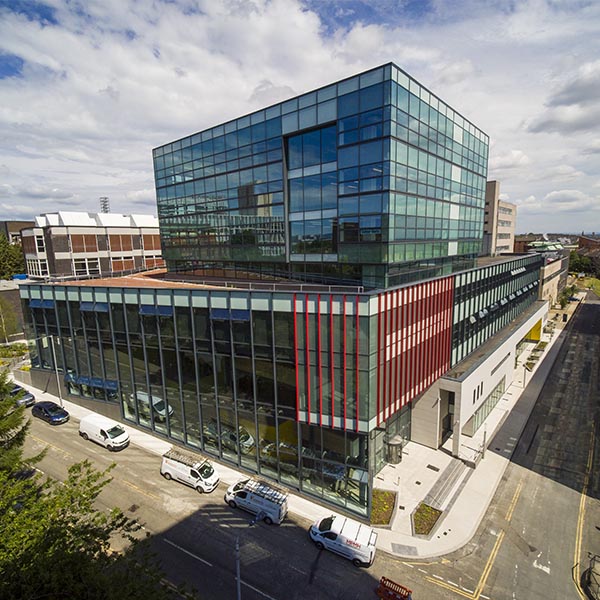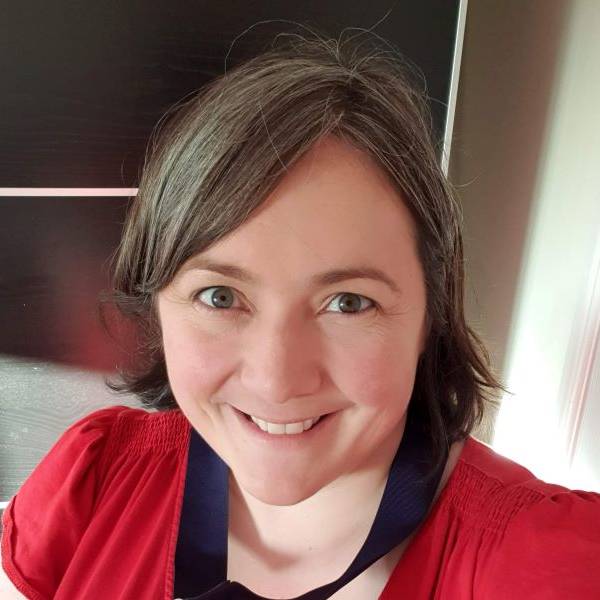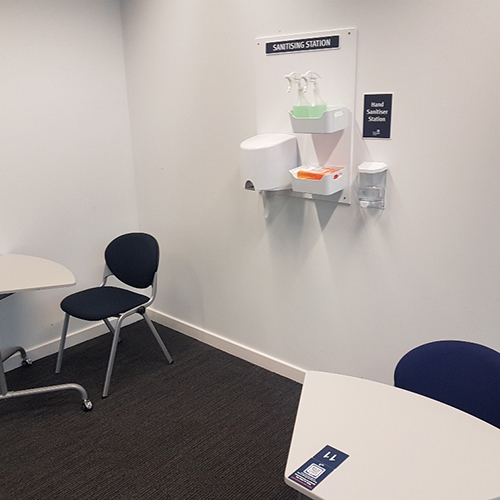
Strathclyde Innovation ForumPrevious Grand Challenges
Response to Third Grand Challenge
As we continue to press on with delivering our Vision 2025, we asked staff for ideas on a number of issues which are of strategic importance to Strathclyde. Our themes for Grand Challenge Three were:
- Key COVID-19 lessons learned
- Sustainability & climate change
- Being a caring & compassionate employer
Theme One: Key COVID-19 lessons learned
As we think about a post pandemic Strathclyde, it is essential that we reflect on the valuable lessons, as well as the challenges, that COVID has presented us with. We asked staff to reflect on their experiences over the last year and to provide input on the key lessons we should learn as we develop our COVID recovery plan and consider a careful and safe return to campus. Set out below are some of the ideas submitted which the Executive Team agreed should be taken forward for implementation.
Employ British Sign Language (BSL) interpreter for graduations
As a socially progressive, inclusive institution, it was suggested that a BSL interpreter will make our graduation ceremonies more accessible to a wider audience. We are now planning how we might introduce this to make our ceremonies more accessible to a wider range of students and their family and friends and to provide an even more inclusive and welcoming environment.
Sharing laboratory staffs' ideas on maintaining safety
A suggestion was submitted to create a platform and process for sharing laboratory workers’ ideas on maintaining safety on a continuous/regular basis. This will now be taken forward to provide an additional opportunity for colleagues to look out for and support the wellbeing of one another.
Staff feedback on meeting guidelines
Another submission to the Innovation Forum requested staff feedback be gathered on whether there is a benefit in having more formal 'guidelines' for the timings of meetings (for example no meetings scheduled before 9am, avoid lunchtime period where possible, avoid after 5pm). Further consideration as to how this might be taken forward is now underway.
Building our PGR community
Continuing to provide virtual and blended approaches to building our PGR community was raised as an idea by a staff member. This suggestion speaks to two of the University's Strategic Goals: creating an outstanding student experience; delivering world-class research. The Strathclyde Doctoral School will hence continue with virtual, blended and face-to-face meet ups, with Schools and Departments doing likewise.
Online Vivas
The suggestion of continuing to host Vivas online where appropriate was considered to align well with the University’s socially progressive ethos. Where deemed appropriate and in the interests of all parties, this would save time and money spent on travel and reduce our emissions whilst ensuring the wellbeing of our staff, students and external experts.
It could also provide our postgraduate researchers with access to a wider range of global experts to examine their work and build our reputation as an internationally leading research institution. The Executive Team considered this idea and agreed that holding PhD Vivas online should remain an option following the end of the pandemic.


I am absolutely delighted that my idea for British Sign Language interpretation at graduations will be implemented in the near future. The Innovation Forum, providing a transparent and direct link between the wider Strathclyde community and the upper echelons of the University, makes equitable and just organisational change possible.
Outreach Officer, Pure & Applied Chemistry
Theme Two: Sustainability & Climate Change
The University is committed to sustainability, to climate action and to achieving a net zero carbon campus by 2040 at the latest. To help accelerate this work, ideas were sought through the Strathclyde Innovation Forum on what else the University can do to address the challenges brought by climate change.
Some of the ideas which the Executive Team agreed should be taken forward are:
Paper-free courses
Two submissions mentioned the use of digital solutions (OneNote, for example) instead of printing to enable cost savings and reduce paper waste. Whilst flexibility is important, Executive Team agreed that reducing printing and paper waste was important for our University.
Re-badge old uniforms
Rebadging redundant uniform via our suppliers or a remanufacturer. This idea responds to circular economy and seeks to resolve a current issue with our uniforms and PPE.
Terracycle (recycling drop off)
Several colleagues submitted ideas around the use of 'drop off' zones at the University for donation and reuse of items, including from the local community. Executive Team agreed this should be considered further.
Community engagement - climate plans
An idea was submitted relating to assisting communities with technical knowledge to enable decarbonisation and sustainability.
New search engine (escosia)
Two ideas mentioned the benefits of escosia search engine. This has a biodiversity benefit (off site); it was agreed that staff and students should be told of this sustainable search engine option.


It is great to have had such a superb range of excellent ideas, illustrating that colleagues are engaged in and thinking about climate issues. Many of the Grand Challenge ideas submitted through the Innovation Forum will be implemented through our Climate Change & Social Responsibility Plan, helping to accelerate the University’s ambitious sustainability agenda.
Executive Lead for Sustainability
Theme Three: Being a caring & compassionate employer
The final Theme of Grand Challenge Three related to the University as a Wellbeing Organisation: "A Wellbeing Organisation is one which makes looking after its staff one of its highest priorities. The University works hard to be a caring and compassionate employer, nonetheless, we would like your ideas on how we could be more so."
Colleagues submitted a range of ideas under this Theme, ranging from ideas for socialisation to changing working practises. Find out more, below, about some of the ideas we'll be looking to implement in the coming weeks and months.
Socialising at a local level
One colleague suggested staff should have more structured opportunities to socialise at a local level.
For many people, the COVID-19 pandemic has resulted in a loss of social interaction and connection with colleagues. A focus on the opportunity to socialise, network and collaborate would aim to improve mental health, staff engagement and overall wellbeing.
Encouragement to exercise
Reduced commuting and working from home have led to some staff having a more sedentary lifestyle impacting physical and mental health. Exercise and movement bring benefits to mental and physical health. Executive Team agreed that our experts in Strathclyde Support were key to implementing this idea and should be asked to remind staff of the range of support they offer.
Enhanced Induction for new staff
It was suggested that the provision of small items as a ‘welcome to Strathclyde’, could enhance the onboarding experience for new starts. Executive Team agreed and an alternative ‘electronic starter pack’ (including vouchers for example) will also be considered.
Readvertise support for staff who are carers
We will have staff who were not previously involved in caring but now are, and vice-versa. We should regularly remind staff of our carer support given this fluidity. Executive Team agreed with this and regular publicity through Inside Strathclyde is being organised.
Growing our Mindfulness offering
The therapeutic benefits of Mindfulness are widely researched and would offer more opportunity for staff to attend. Executive Team agreed and recognised the importance of developing our provision in this important area.
I am delighted my idea was one of those chosen for implementation. By growing the provision of Mindfulness at Strathclyde, the University is recognising its benefits and showing that it is prepared to invest in the welfare of colleagues in this way.
Moira Watson
Technician, Strathclyde Institute of Pharmacy & Biomedical Sciences
Response to Second Grand Challenge
Our second Grand Challenge asked for colleagues’ ideas on how we might adapt to deliver our Strategy in light of the circumstances which Covid has brought us. Many ideas were received and here are just a few which are being implemented.
Research & innovation
An idea was put forward to create and examine better ways for sharing funds and recognition between departments and industry-facing centres, in order to support academic professional colleagues.
The contributor was invited to join our Technology and Innovation Zone team workshops around operational readiness and provided key input on both monetary flow and structure in relation to the Technology and Innovation Zone research clusters. Discussions are also actively progressing on ways to formally recognise and record staff work and input within the clusters for initiatives that may be short term but which help colleagues to develop their wider skills and abilities.

Values & culture
A better neighbour
In response to the second Grand Challenge, it was suggested that the University could better engage with our surrounding communities to identify how we can be a better neighbour to these communities.
A Public Engagement Group has been set up, co-chaired by Professors Madeleine Grealy (Humanities & Social Sciences) and John Liggat (Science). Professor Douglas Brodie is also leading a group focusing on Social Inclusion for the Glasgow City Innovation District.
Staff satisfaction survey
There was a suggestion that the University carry out a systematic, comprehensive, anonymous, and continuous staff satisfaction survey.
This suggestion is very much in line with our current People Strategy. As well as our regular Values Surveys and our recent Staff Wellbeing Survey, we are now planning to implement staff pulse surveys and we look forward to using these to hear more of the voices of our colleagues.
Outdoor exercise
An idea was submitted through the Innovation Forum around outdoor exercise during winter months. It was suggested that staff be encouraged to utilise the agile working framework to exercise during daylight hours, offering more safety.
A number of staff communications were issued to encourage staff to take time away from their work during the hours of daylight and encouraging colleagues to get outside for some fresh air and exercise, wherever possible. We will continue to support daylight exercise during the working day, particularly in the autumn and winter months. The feedback from the recent staff wellbeing survey was also carefully considered by Executive Team and a series of actions are underway which have been publicised in the Principal’s weekly messages.
Breastfeeding mothers
An idea was submitted through the Innovation Forum on how the University could do more to support breastfeeding mothers.
In response, we are looking at our on-campus accommodation for breastfeeding support and will be reviewing our policy on this important aspect of parenthood in the months ahead.
Response to First Grand Challenge
We had a fantastic response to our first Grand Challenge Question - ‘How Do We Ensure A Safe Return To Work For All?’ – with colleagues submitting 100 ideas in the first month alone. Here are just a few examples of implemented ideas, grouped into our Return and Resume Workstream themes.
Safeguarding & compliance
Supply of masks/face-coverings
- a number of ideas submitted to the Safeguarding and Compliance Group were about the provision and distribution of re-usable, branded face coverings for use by staff and students
- the University procured washable, three-ply cotton, Strathclyde-branded face coverings from Scottish manufacturers and they are available to all staff and students from the start of the academic session
Workplace guidelines
- the Group received a request to capture new ways of working in easy to use guidance
- the Covid control measures adopted by the University in buildings across campus have now been published in University Buildings New Working Arrangements
Cleaning & hygiene
- it was suggested to the Group that cleaning materials should be made available for staff to use in their work areas e.g. wipes provided for cleaning down desks and equipment
- this was taken forward in collaboration with Estates Services and sanitising stations with cleaning wipes and sprays are now available in the entrances to all buildings and in departments across the campus for staff and students to use

Human Resources
Blended, agile & flexible working
- many of the ideas submitted to the HR workstream were about normalising flexible and agile working, and ensuring staff stay connected with a blended working model
- these ideas have influenced the new agile working toolkit, including specific suggestions around ensuring career progression equality for those working agiley
- they have also influenced the introduction of a digital-first approach to collaboration where all meetings should be set up so people can join by video/audio
Meeting/email free Fridays
- ideas were submitted with suggestions for meeting free Fridays as a follow on from the Friday rest days
- these ideas informed thinking about new ways of working, and as a result we now have 'meeting free Fridays'

Campus travel
Changes to the Cycle to Work scheme
- in June, an idea was put forward to consider helping staff purchase or hire electric bikes for travel to work
- though the Cycle to Work scheme was already in place, the cost limit has been increased so the cost of a bike, related safety equipment, or both, can now be up to the value of £4,000
Staff access to HULI - an automatic route creator for running, cycling and walking
- in September, the Strathclyde spin-out company Huli, put forward an idea to trial its automatic route creator as a staff benefit. Huli creates the best routes for active travel to work, or for leisure. For eg, you can turn a 5km run into a 10km route, making ot hilly or flat on or off-road
- discussions are underway to take this idea forward as a free pilot and input will be gathered from HR and the wellbeing teams
Cycle routes to campus
The creation of short videos showing cycling routes to campus was an idea submitted to the Innovation Forum in June. This has recently been implemented with the videos published on the Return and Resume hub.
Cycle route: Partick (West End) to campus
Cycle route: Shawlands (South Side) to campus
Campus readiness
Outdoor shelters
- four staff submitted separate ideas on setting up outdoor shelters to support staff and student attendance and enhance opportunities for social distancing
- this is currently being considered through the Heart of the Campus project and a working group are considering covered shelters around the residences
Cleaning & signage in toilets
- suggestions for increased signage, cleaning and other hygiene measures have been implemented
Access control
- additional access control to monitor footfall and minimise any outbreak was suggested through the Innovation Forum.
- this has been implemented, with access control added to buildings to support outbreak control
Cleaning of cups
- an idea was submitted through the Forum of an alternative to single use, ‘throw-away’ cups. This is currently under active consideration, with further information to follow in due course
IT readiness
Microsoft Teams
- Two of the innovative suggestions submitted via the Innovation Forum related to the implementation of Microsoft Teams. A third related to implementing other communications platform as a 'stop gap' until Teams became available. The implementation of Teams was a popular proposal coming from the forum.
- Microsoft Teams is part of the Microsoft Office 365 Cloud Suite of products. The Information Services Directorate had already proposed to the University that this Cloud-based Suite of products be implemented and took a business case to the Information Strategy Committee in June 2020, proposing a “Strathclyde Cloud Programme” was established to do just that and this was later approved by Executive Team in July 2020.
- As soon as ISD had permission to commence, it immediately initiated a programme implementing MS Teams in a number of pilot areas across the Institution, engaging directly with all four Faculties and assisting many areas of the University in preparations for the start of the academic year. The lessons from these pilots will feed into a wider rollout of Teams across the University.
Current ongoing pilots for Teams are:
- HASS for teaching – commenced on the 17th of August in time for the PGTE session commencing
- Science – for collaborative working between remotely based IT staff
- Engineering pilot within PNDC
A Student Experience pilot for people doing outreach work in schools and a pilot within ISD will shortly commence.
Microsoft Cloud
ISD has also been implementing and conducting pilots on other Microsoft Cloud products:
- Sharepoint is being migrated to the Cloud version
- Microsoft Azure has been used to develop and successfully implement a virtual desktop allowing staff and students to access software normally limited to labs on campus
- in collaboration with the Business School the Microsoft Booking product is being piloted
- in collaboration with HASS and Educational Enhancement there was a rapid deployment of the Microsoft Stream transcription product, implemented before the start of the session
- many of the security measures associated with the suite are being implemented
The programme will run for many years in a collaborative and agile manner.
An Agile Planning Group with cross University representation will be set up in October to guide the many individual projects that the programme will encompass.